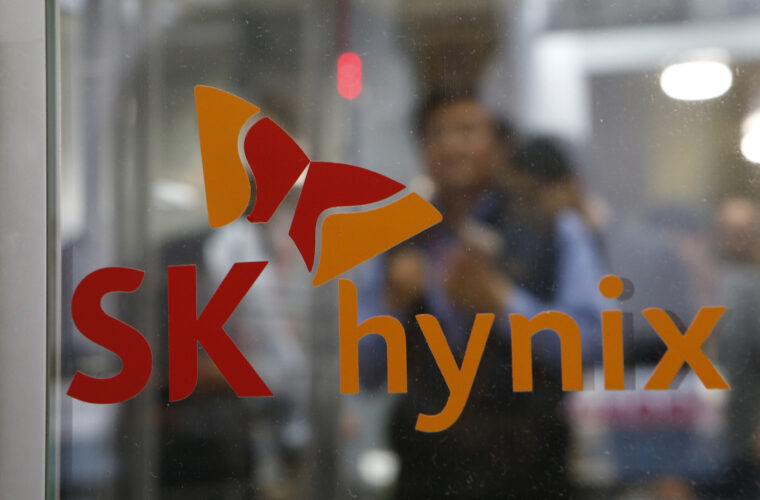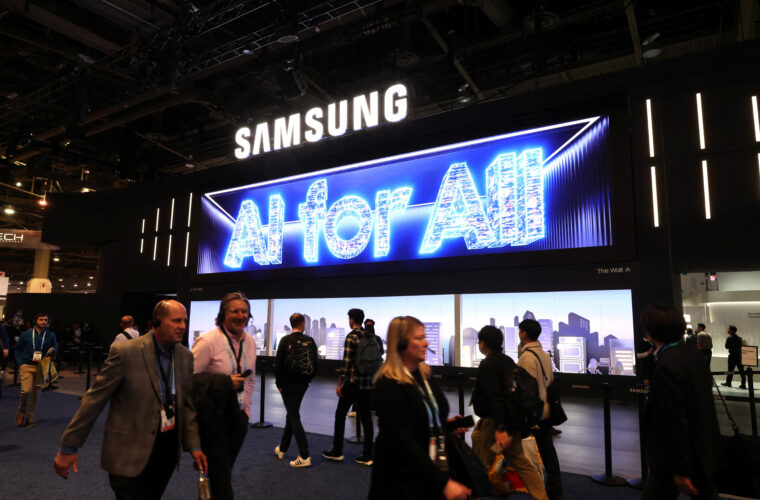By Joyce Lee and Heekyong Yang
SEOUL (Reuters) – South Korea’s SK Hynix said a boom in artificial intelligence will drive chip profits after posting a sharply narrower third quarter loss than it did in the previous quarter.
Strong demand for advanced chips used in AI helped ease the impact of a prolonged slowdown in demand for commodity chips used in smartphones and computers in the three months to the end of September, the world’s second-biggest memory chipmaker said on Thursday.
SK Hynix said appetite for its high-end DRAM chips used in tech devices such as high bandwidth memory (HBM) chips used in generative AI is a bright spot, with the memory chip market set to recover in earnest next year.
“We are sold out on next year’s capacity for HBM3 and HBM3E chips together… we are discussing capacity and technical cooperation with most clients into 2025,” said Myoungsoo Park, head of DRAM marketing at SK Hynix.
SK Hynix said its DRAM business had returned to profit in the third quarter, after reporting losses in the first two quarters of this year.
The company was ahead of rivals in developing HBM3 chips and securing AI-chip leader Nvidia as a client.
Samsung Electronics will report full third-quarter results on Oct 31, when the No.1 memory chipmaker is also expected to flag improving industry conditions.

NAND LOSSES
However, analysts said SK Hynix’s business for NAND flash chips, used in data storage, probably recorded about 2 trillion won in third quarter losses due to dried-up demand.
“We don’t expect that SK Hynix will be able to swing to company-wide profit in the current quarter, as losses for the NAND flash business remain sizable,” said Baik Gil-hyun, an analyst at Yuanta Securities.
SK Hynix shares fell 3.6% in morning trade, tracking Wall Street’s overnight losses on a drop in technology stocks, with SK Hynix’s quarterly loss slightly missing market forecast also contributing, analysts said.
SK Hynix reported a 1.8 trillion won ($1.33 billion) third-quarter operating loss, versus a 1.7 trillion won operating loss estimated by 20 analysts’ views compiled by LSEG SmartEstimate, weighted toward analysts who are more consistently accurate.
It was its fourth consecutive quarterly loss, but improved from a trough of a 3.4 trillion won loss in the first quarter and a 2.9 trillion won loss in the second quarter.
The effect of memory chipmakers’ production cuts are starting to show as clients are placing new orders and chip prices are starting to stabilise, the company said.
Asked about the planned merger between Kioxia Holdings and Western Digital Corp’s flash memory business, SK Hynix – a major Kioxia investor and rival to both – said it does not currently back the deal. It did not elaborate on why.
($1 = 1,351.6200 won)



